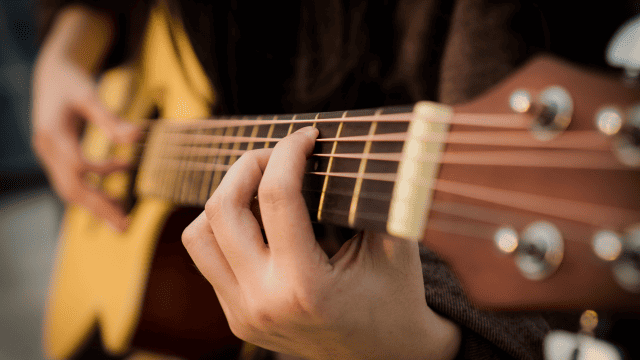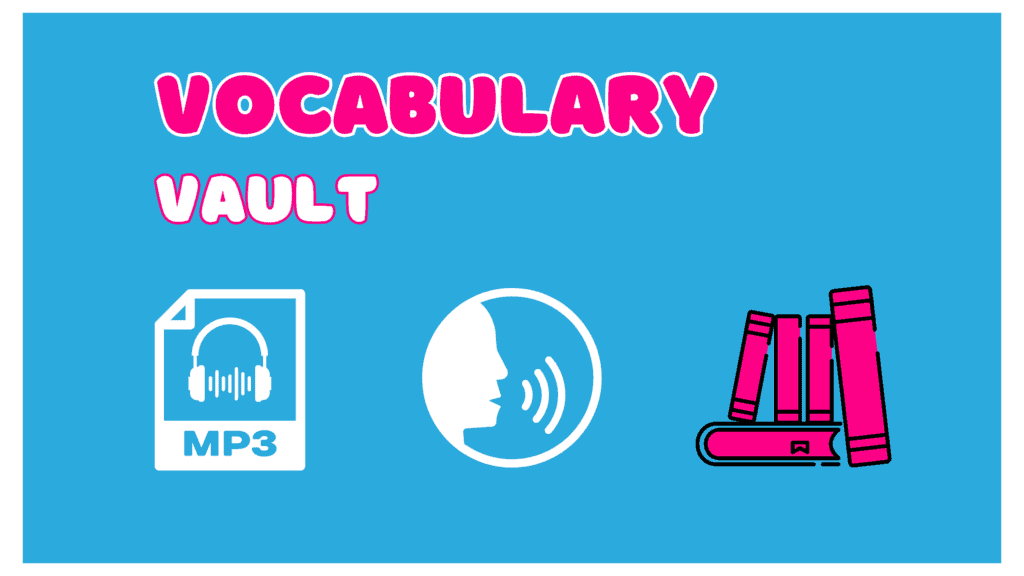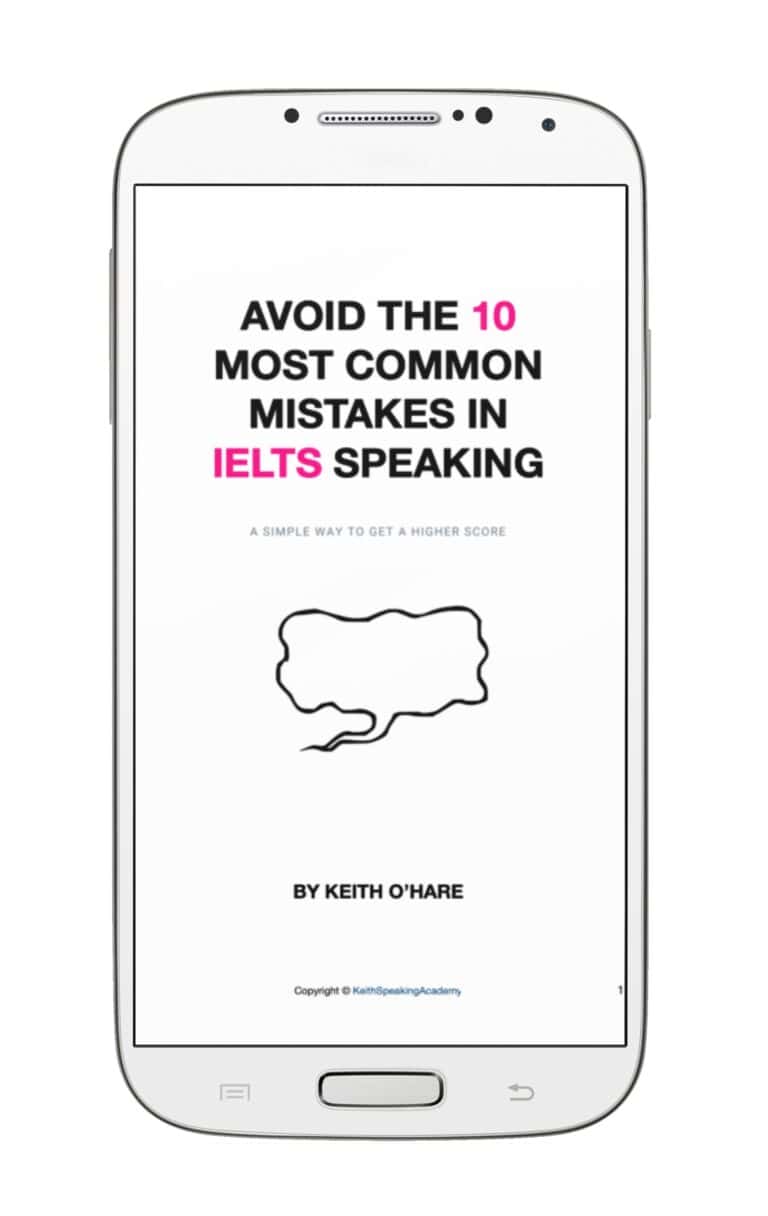IELTS Speaking Lesson about Music
👇 Take this lesson with you! 👇
Music in IELTS Speaking is an important topic. You may be asked about any of the following areas,
- personal things (playing an instrument, your favourite song),
- culture (pop culture, classical music, the history of music)
- society (the music industry, musical education)
This lesson will give you lots of vocabulary and ideas so you can talk with coonfidently on the IELTS topic of music. There is also a story of three chapters that will help you review all this vocabulary.
Table of Contents
Warm Up
Fill in the gap with ONE word
1. I will _______ on some music, so you can relax whilst studying.
2. I don’t think I am very _________, I can’t sing and I don’t play any
instruments.
Click the arrow to see the answers
1. I will put, turn, switch on some music, so you can relax whilst
studying.
2. I don’t think I am very talented, musical, I can’t sing and I don’t play any instruments.
IELTS Speaking vocabulary: Music
Music (uncountable noun) /ˈmjuː.zɪk/
What kind of music do you like?
Note:
I like many musics ❌I like many kinds of music ✅
That’s a lovely piece of music ✅
What kind of music do you like?
- All sorts
- Many different kinds
- You name it, I like it
Collocations
- Play music (usually play an instrument, but could be listening to music).
- Put on music
- Listen to music
- Read (sheet) music
- Write music
- Compose music (frml.)
Musician (n. person) /mjuːˈzɪʃ.ən/
- amateur musician
- professional musician
I wouldn’t consider myself a musician, but I do play a bit
Musical (adj.) – /ˈmjuː.zɪ.kəl/
- A musical instrument
- A musical family
I’m a musical person, I play the piano and guitar
A musical (n.) = a show with music and singing
- A Broadway musical
Phantom of the Opera was a hit musical
THE STORY : The musical roller coaster
CHAPTER 1
In a small town outside of London, there lived a boy named Liam, who thought he was very musical. His family loved him, but they struggled to make ends meet (= to have enough money to live), and his parents saw music as a waste of time. Despite this, Liam listened to music all the time.
One day, he stumbled upon (=to find by chance) a second-hand guitar in a local market. It was going for a song (= cheap), so with the few coins he had saved, he bought it.
Liam started playing the guitar secretly in his bedroom, softly strumming the guitar strings so no-one else would hear. He would just play songs by ear (=without sheet music), copying melodies he heard. He realised he had a knack for (=have a talent) picking up (=learn informally) tunes really quickly.
At night, he hid the guitar under his bed. His talent blossomed in secrecy, until one day everything suddenly changed.

Types of instruments
- I play the piano
- I play piano (U.S.)
Both forms (with and without ‘the’ are correct)
Here is a typical IELTS Speaking question on this topic:
Do you play a musical instrument?
If your answer is yes...
Yes, I play the piano,
I’ve been playing since I was a kid.
I got started after watching a classmate play. She was so good!
If your answer is no...
No, I don’t, but I would love to try the guitar.
I think it’d be cool to be able to play some popular songs.
Ways to say you are GOOD AT something
- I have a flair for playing the guitar
- I have a knack for playing the violin
- My friends say I am talented at the violin
- I am quite handy with the violin
Discover a list of common instruments
- Violin, viola, harp…. (string instruments)
- Snare Drum, triangle, cymbal… (percussion instruments)
- Bassoon, flute, clarinet… (wind instruments)
Types of music
We can say, type, kind or genre of music. Here are some of the most common types.
- Hip hop and rap (e.g. Eminem)
- Reggae (e.g. Bob Marley)
- Classical (e.g Mozart)
- Instrumental (without voice)
- Jazz (e.g. Charlie Parker)
- Alternative – Indie (e.g. Stereophonics) • Blues (R&B) – (e.g. BB King)
- Rock – (e.g. Blink-182)
- Country (e.g. Carrie Underwood)
- Opera (e.g. Pavarotti)
- Pop (e.g. Blur)
26 Genres of Music in Alphabetical Order
Ways to say you LIKE / DISLIKE some types of music
LIKE
I am a big fan of jazz
I am really into jazz
I am one for jazz
I’m a die-hard fan of jazz
I can’t get enough of jazz
I really dig jazz
I am passionate about jazz
DISLIKE
I hate musicals
I can’t stand musicals
I can’t be doing with musicals
CHAPTER 2
Everything changed for Liam when one of his teachers, who was a die hard fan of jazz, heard Liam play a jazz tune on one of the guitars at school. His playing was melodious (=has a nice melody/tune), soothing and catchy. (=easy to remember)
The teacher, Mr. Andrews, recognised his flair (=talent) and encouraged him to take part in a local music competition. Liam agreed.
The competition day arrived, and Liam’s performance was outstanding (=very good) and he won. He, his friends and teacher were over the moon (very happy).
However, his father heard about the competition, and also discovered Liam’s guitar under his bed.
His father went ballistic (=got vey angry) and broke the guitar, insisting Liam focus only on his studies.
Liam realised he would have to face the music (= to face reality) and give up his dream.
Idioms to talk about music in IELTS Speaking
- To face the music = to face a difficult situation you have created
My boss has discovered that I never did the mandatory training, oh well, I guess I will have to tell him and then face the music
- To play a song by ear = to play it without sheet music, just by listening and repeating
He never learnt to read music, he just plays songs by ear.
- I can’t do something for toffee = I am really bad at it
(Always in negative)
I can’t sing for toffee
I can’t play the piano for toffee
- It’s going for a song = cheap
I’m going to buy this television in the sale, it’s going for a song.
- To blow your own trumpet = to boast and say you are the best.
I don’t like Tom, he is always blowing his own trumpet.
Chapter 3
Liam had stopped playing music and was feeling down in the dumps (=feel sad).
Then suddenly one day, his father, influenced by conversations with other parents, began to see music in a new light (= see it in a new way).
The other parents said music was really important for children; it fostered creativity, emotional growth, and even better academic performance.
Liam’s father realised his mistake, and decided to buy Liam a new guitar, apologising for not understanding his son’s passion.
Liam could now practice openly, picking up new tunes and even composing his own catchy melodies.
Years passed, and Liam’s talent and hard work paid off (= to give good results).
He became a renowned (= famous) recording artist, collaborating with big names in the music industry, his melodies resonating with hearts worldwide, just as they once resonated in the quiet space of his small bedroom.
THE END!
Pronunciation Files For Vocabulary From My Best Live Lessons
Use Words EASILY in English Conversations!
More Free Lessons
If you liked this lesson about music in IELTS Speaking, leave a comment below!
There are more lessons you can follow in the links below too.
FAMILY in IELTS Speaking. Useful collocations and vocabulary to help you discuss about family.
CHILDHOOD in IELTS Speaking. Learn different activities children do, toys, changes in children nowadays.
MEDICINE in IELTS Speaking. Learn the COVID Vocabulary for IELTS Speaking and talk about Alternative Medicines using idioms and vocabulary.
SHOPPING in IELTS Speaking. Learn the essential vocabulary for this topic, as well as how to talk about online shopping.


